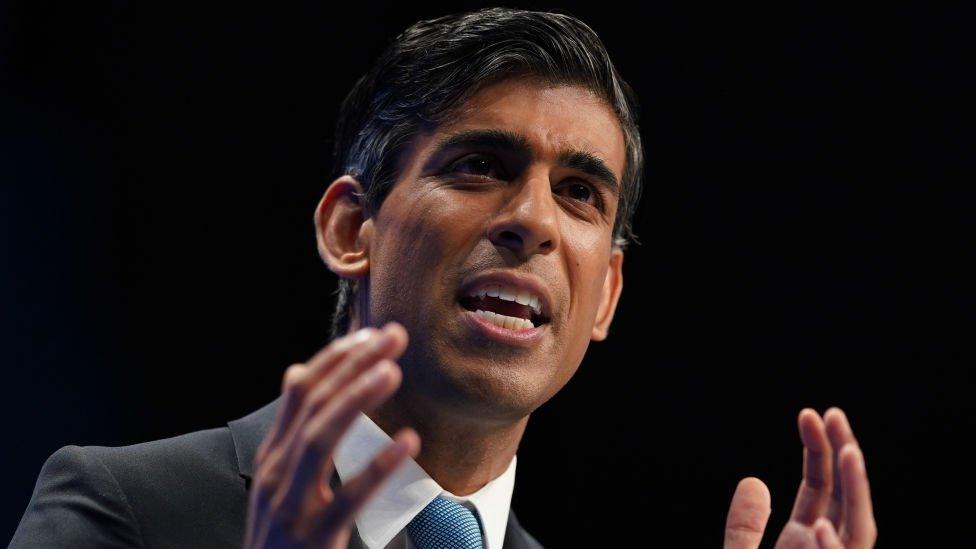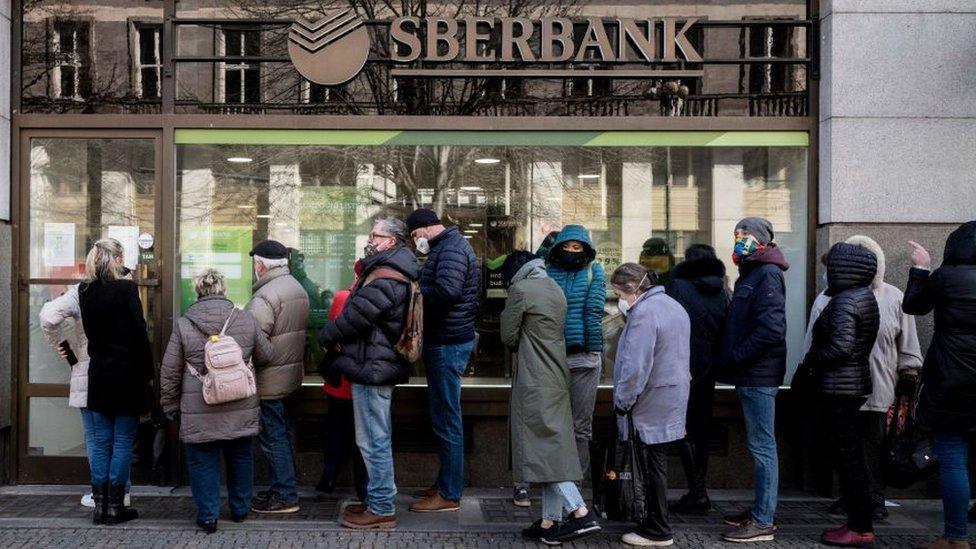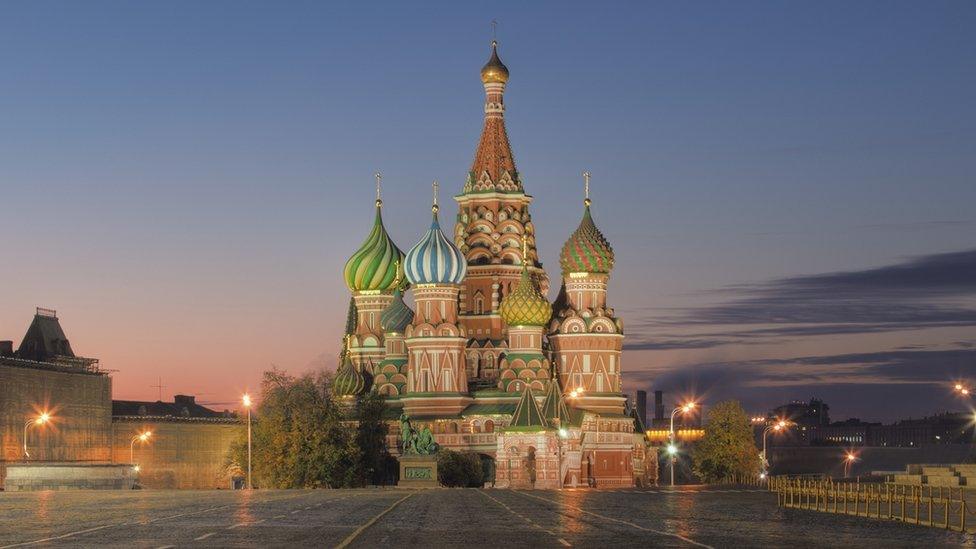Rishi Sunak targets Russia with fresh banking sanctions
- Published

The UK government has joined with the US and the EU to announce new sanctions against Russia's central bank.
It has banned British people and businesses from making transactions with the Russian central bank, its finance ministry and its wealth fund.
The move is designed to cut off Moscow's major financial institutions from Western markets.
The UK government said the package of sanctions "will devastate Russia's economy".
Chancellor Rishi Sunak said they "demonstrate our steadfast resolve in imposing the highest costs on Russia and to cut her off from the international financial system so long as this conflict [with Ukraine] persists".
In response to the sanctions, President Putin will chair an emergency meeting with economic advisers on Monday.
Meanwhile Russia's central bank more than doubled interest rates to 20% after the value of the rouble dropped.
A Kremlin spokesman said: "The Western sanctions on Russia are hard, but our country has the necessary potential to compensate [for] the damage."
Western nations announced at the weekend that they would impose sanctions on Russia central bank to prevent it from selling its vast reserves to prop up its own banks and companies.
Russia's central bank has build up $630bn in reserves.
On Saturday, the EU, the US, the UK and other allies also announced that some Russian banks would also be banned from Swift, an international payment system.
Swift is the global financial artery that allows the smooth and rapid transfer of money across borders.
Banning Russian from using Swift will, for example, hit payments for its key energy and agricultural products.
What sanctions against Russia have been announced so far?
Measures announced by the EU, UK, US and their allies include:
Removing selected Russian banks from the Swift messaging system to cut them off from the international financial system and "harm their ability to operate globally"
Freezing the assets of Russia's central bank, to limit Russia's ability to access its overseas reserves
Limiting the sale of citizenship via "golden passports", which allow wealthy Russians to become citizens
Launching a transatlantic task force to identify and freeze the assets of sanctioned individuals and companies
Targeting more "officials and elites close to the Russian government, as well as their families"
It is not clear which Russian banks will be banned from Swift, but Bank of England governor Andrew Bailey is due to meet chief executives of High Street banks and building societies on Monday to discuss the potential impact.
Mr Bailey said: "The Bank of England continues to take any and all actions needed to support the government's response to the Russian invasion of Ukraine."

This is a form of economic war

Central banks are meant to have "sovereign immunity" which means transactions with them are supposed to be free, in order to protect global financial stability.
But these actions from the US, EU and now the UK are designed to promote the financial instability of Russia as a conscious tactic.
They are designed to give Russia and its people a deep recession - even bank runs - as the tangible consequence of their president's militarism. This has never before happened with G20 nations.
By "prohibiting" transactions with the Russian central bank, it renders its $630bn currency reserve war chest useless in sterling, as well as dollars and euros.
Over the weekend there were already reports of queues at cash machines. Now the central bank must reassure the Russian public that it is printing enough roubles to sustain their demand. The value of that currency internationally will be rather more difficult to protect.
This is more than a financial sanction - it is a form of economic war and it is designed to provoke social and political instability for the Kremlin.

Russia attacks Ukraine: More coverage
THE BASICS: Why is Putin invading Ukraine?
IN DEPTH: Full coverage of the conflict

Related topics
- Published27 February 2022

- Published23 February 2024
